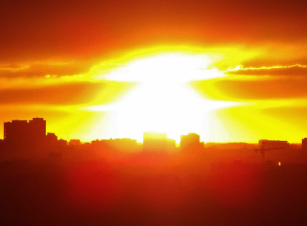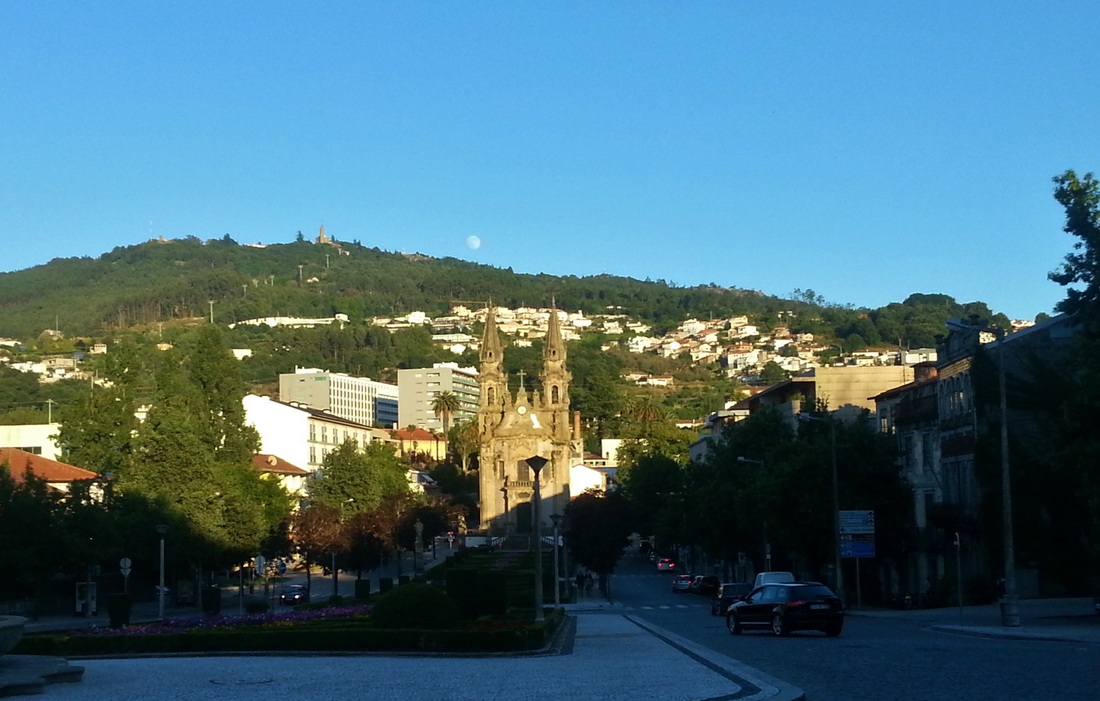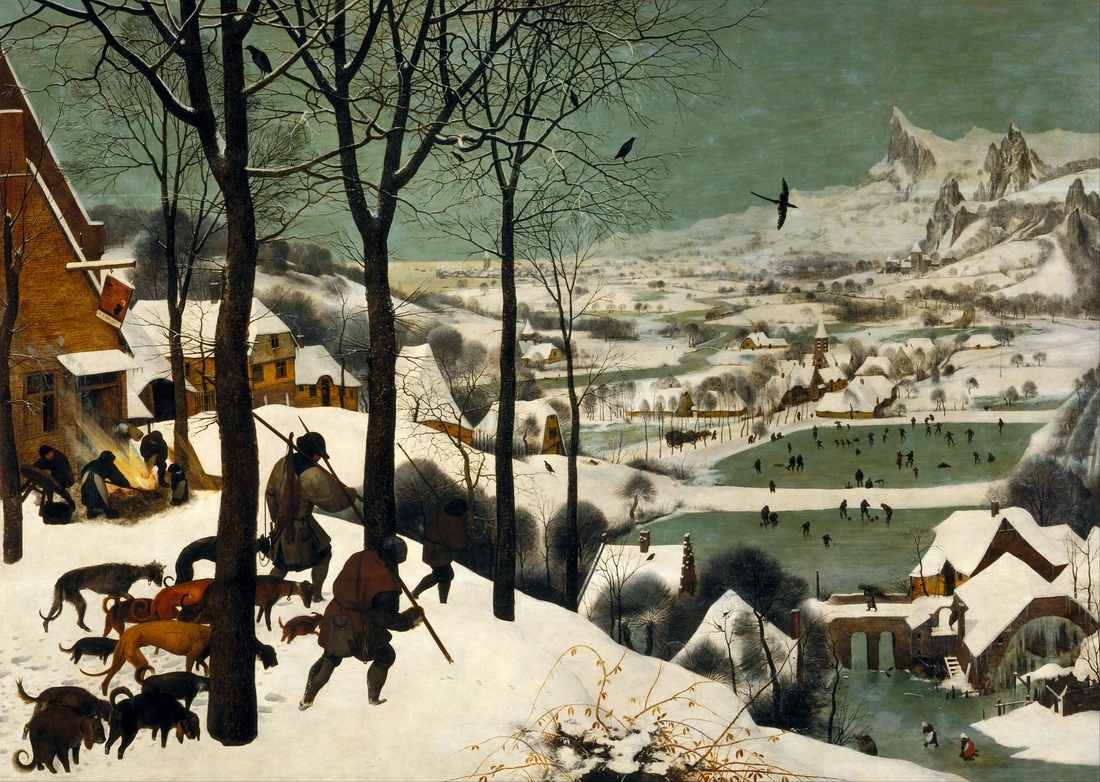 One of those brilliant Toronto sunsets One of those brilliant Toronto sunsets Note: originally posted on The Otter, blog of the Network in Canadian History and Environment. Like the research that inspired it, this article is a cultural consequence of climate change. Seven years ago, I was on a bus, reading a book about ancient climates. I looked out the window at a sunset so brilliant, it seemed to ignite Toronto's skyscrapers. I thought of global warming, and wondered: had anyone searched for connections between human history and climate change? Over the next seven years I found out that they had, but that there was still plenty of room for a new perspective. The book I was reading was the product of an academic culture increasingly affected by the growing manifestations of global warming. Years ago, its importance to me was shaped by my place among a tangle of different cultures that all included discourses about climate change. The sunset that helped me imagine new connections between ideas triggered by these cultures led to a dissertation, which explored the climate history of the Dutch Golden Age. Now completed, the dissertation reveals, in part, that culture is inextricable from the material influence of climate change. Simply put: we cannot comprehend the human consequences of climate change, past, present, and future, without understanding culture. That insight was central to the papers of my panel at the World Congress of Environmental History, which recently concluded in beautiful Guimarães, Portugal. Panelists discussed how climate change can upend delicate relationships between humans and local environments, in ways that ultimately influence culture. Thanks to funding generously provided by the Network in Canadian History and Environment, I was there to chart the ways in which a cooler early modern climate, known as the “Little Ice Age,” influenced the famous Dutch culture of the seventeenth century. My paper drew both from the last chapter of my dissertation, and from my more recent articles on Arctic environmental history. Strangely, projected relationships between climate and culture rarely feature in the reports regularly published by the Intergovernmental Panel on Climate Change or the World Meteorological Organization. Moreover, scholars of past climates who consider cultural consequences have too often assumed that a worsening climate inspired melancholic cultural responses. Those narratives are easily dismissed by cultural historians who can readily find alternative explanations for changing artistic tastes, or shifting patterns of gendered persecution, during even the coldest decades of the Little Ice Age. Because the Dutch Republic flourished during the nadir of the Little Ice Age, examining its richly documented culture provides a rare opportunity to refine narratives that connect climate change to culture. My paper argued that literate Dutch observers, writing within a maritime culture that produced detailed records of daily weather, discerned changes in prevailing patterns of extreme weather in the seventeenth century. This partial understanding of climate change might have informed cultural responses, but I believe that we must be careful in making these connections. Take the famous Dutch “winter landscapes” of the sixteenth and seventeenth centuries. The rise of these paintings during the onset of a particularly cold phase of the Little Ice Age appears, at first, like an especially direct cultural consequence of climate change. Certainly many scholars of past climates have argued as much. However, on closer inspection, connections between climate and culture are not so straightforward. The painters of winter landscapes often painted indoors, during years that were not especially cold, and their paintings were often heavy with mythology and allegory. Certainly they did not directly reflect contemporary weather or climate. Moreover, winter landscapes were often part of a series, which included depictions of other seasons. Finally, they were attuned to a market that had dried up by the late seventeenth century, another period of extreme cold that was nevertheless not accompanied by paintings of winter landscapes. The Dutch example therefore reveals that, in order to link climate change to cultural responses, we must carefully establish relationships between climate, weather, individuals, markets, and more. Scholars who examine the human consequences of climate change must range across so many disciplines that making assumptions can be very tempting. However, too easily connecting climate to culture can undermine other conclusions founded on more sturdy ground. Ultimately, there were some elements of Dutch Golden Age culture that probably reflected the influence of climate change. Among them: poems and illustrations that responded to distinct weather events rendered more frequent during the coldest (or warmest) decades of the Little Ice Age. Technologies like new heating devices and “ice wagons” that travelled speedily across the ice likely also reflected the cultural influence of a cooler climate. So too did the uniquely egalitarian cultures that emerged from winter carnivals, which were held on ice that was more extensive and lasted longer in the chilliest phases of the Little Ice Age. Overall, concrete cultural responses to climate change in the Dutch Republic were consequences of, or contributed to, the broader societal resilience of the Dutch to the Little Ice Age. At the WCEH, my paper and panel demonstrated once again that relationships between climate change and humanity are inexplicable without a rigorous analysis of culture. ~Dagomar Degroot
|
Archives
March 2022
Categories
All
|



 RSS Feed
RSS Feed